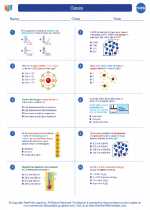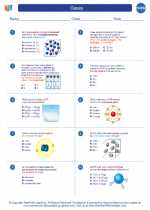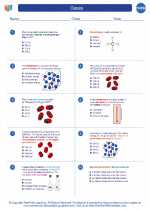Mutualism in Ecology
Mutualism is a type of ecological interaction where both species involved benefit from the relationship. This type of interaction is common in nature and plays a crucial role in maintaining the balance of ecosystems. It can occur between different species of organisms, including plants, animals, fungi, and bacteria.
Examples of Mutualism
There are numerous examples of mutualistic relationships in nature:
- Pollination: Bees and flowers engage in mutualism, where bees obtain nectar and pollen from flowers while aiding in the pollination process.
- Ant-plant mutualism: Certain species of ants protect plants from herbivores, while the plants provide food and shelter for the ants.
- Gut flora: Humans and other animals have mutualistic relationships with the bacteria in their gut, aiding in digestion and providing essential nutrients.
- Mycorrhizal fungi: These fungi form mutualistic relationships with plant roots, aiding in the absorption of nutrients from the soil.
Benefits of Mutualism
Mutualistic relationships offer several benefits to the participating species:
- Access to resources such as food, shelter, or protection
- Enhanced reproductive success through pollination or seed dispersal
- Improved defense against predators or pathogens
- Increased efficiency in resource utilization
Study Guide
When studying mutualism, it's important to understand the following key points:
- The definition of mutualism and how it differs from other types of ecological interactions, such as commensalism and parasitism.
- Specific examples of mutualistic relationships in different ecosystems and the benefits derived by each species involved.
- The ecological significance of mutualism in maintaining the balance and stability of ecosystems.
- The potential impacts of environmental changes, such as habitat destruction or climate change, on mutualistic relationships.
- The role of mutualism in human agriculture, including the cultivation of crops that rely on mutualistic interactions for pollination or nutrient uptake.
Understanding mutualism is essential for comprehending the intricate web of interactions that sustain life on Earth and the importance of preserving these relationships for the health of ecosystems.
[Mutualism] Related Worksheets and Study Guides:
.◂Chemistry Worksheets and Study Guides High School. Gases
The resources above cover the following skills:
Physical Science
Energy - A. Energy is involved in all physical and chemical processes. It is conserved, and can be transformed from one form to another and into work. At the atomic and nuclear levels energy is not continuous but exists in discrete amounts. Energy and mass are related through Einstein's equation E=mc 2 . B. The properties of atomic nuclei are responsible for energy-related phenomena such as radioactivity, fission and fusion. C. Changes in entropy and energy that accompany chemical reactions influence reaction paths. Chemical reactions result in the release or absorption of energy. D. The theory of electromagnetism explains that electricity and magnetism are closely related. Electric charges are the source of electric fields. Moving charges generate magnetic fields. E. Waves are the propagation of a disturbance. They transport energy and momentum but do not transport matter.
Relate temperature to the average molecular kinetic energy.



